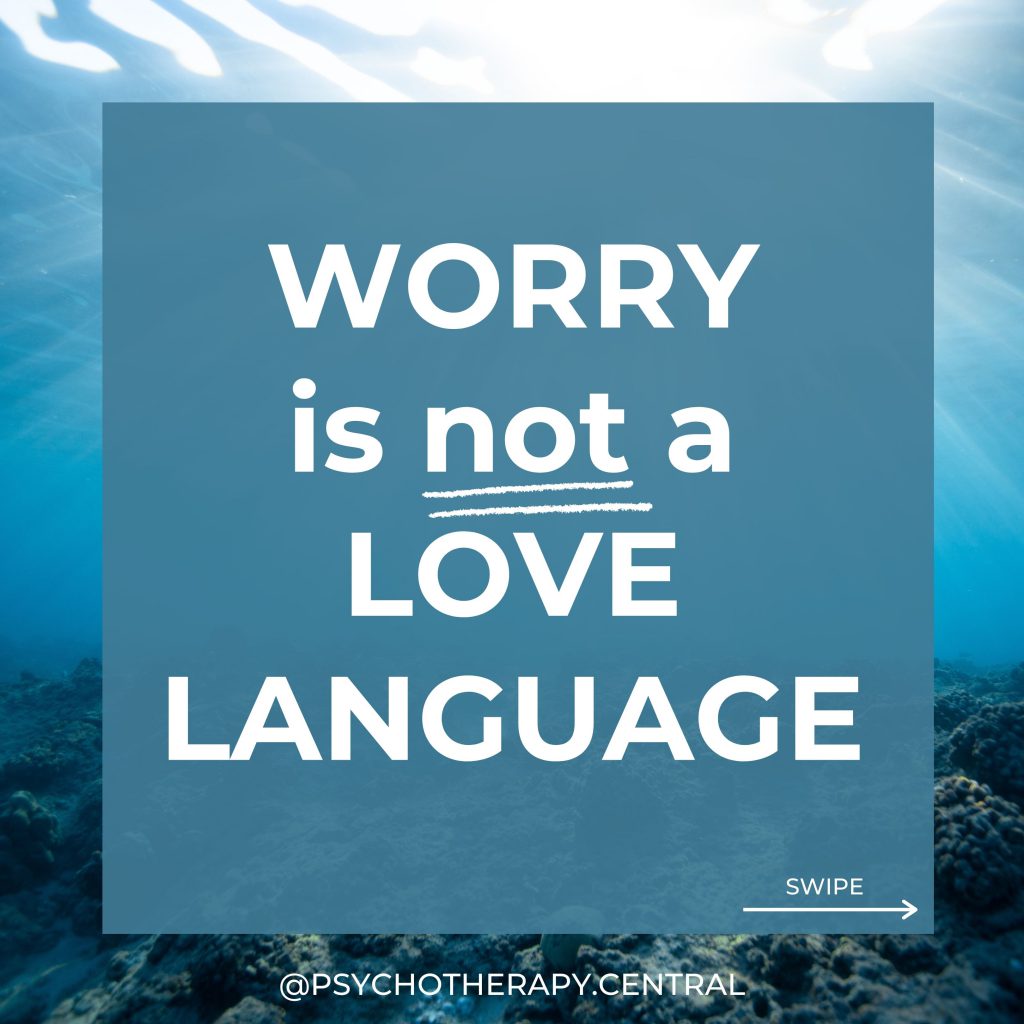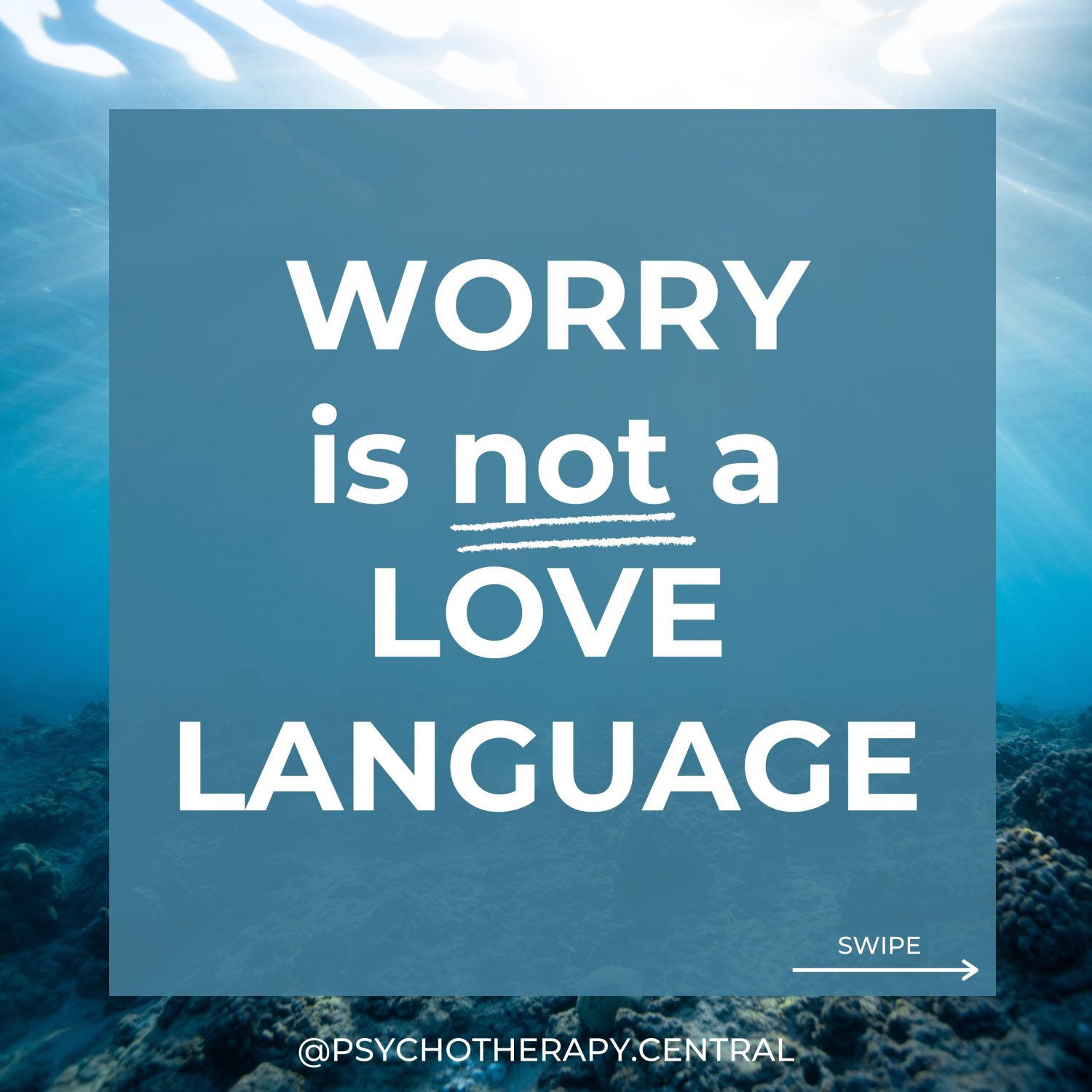You might have grown up with a caregiver who is constantly worried, not only about you but about other threats too. I have seen this play out in specific cultural groups. Especially groups that have experienced trauma. Trauma might be facing starvation three or four generations ago, fleeing a country due to persecution or living through a war. This trauma of our ancestors impacted the way they saw the world and parented their children, which affected how you were parented down the line.
When we are raised by a parent who we know loves us and worries about us, it can start to feel like worry is an excellent way to show love, but let’s be clear, worry is NOT a love language.
Worry teaches our children that something is wrong. Something is not safe in their environment, or something is not okay with them. Worry keeps our nervous system in hyperarousal (or sympathetic activation). Over time, our children learn the feeling of that hyperarousal, and that becomes their new normal. So rather than spending most of their time in the window of tolerance (ventral vagal), they find themselves experiencing anxiety and fear without reason.
Often worry has become a habit. We have grown up with it being presented as a form of love and care. It’s not. Let’s break this cycle and stop implying that I’m showing you love when I worry about you.
Rather than worry about you, I’m going to:
- Affirm your capability to you and me
- Put the relevant things in place to keep those I love safe
- Attend to my fear and anxiety and not project it outward onto others
- Notice when I show worry as a form of love and gently correct myself
Let me know in the comments if this resonates, love Jen

